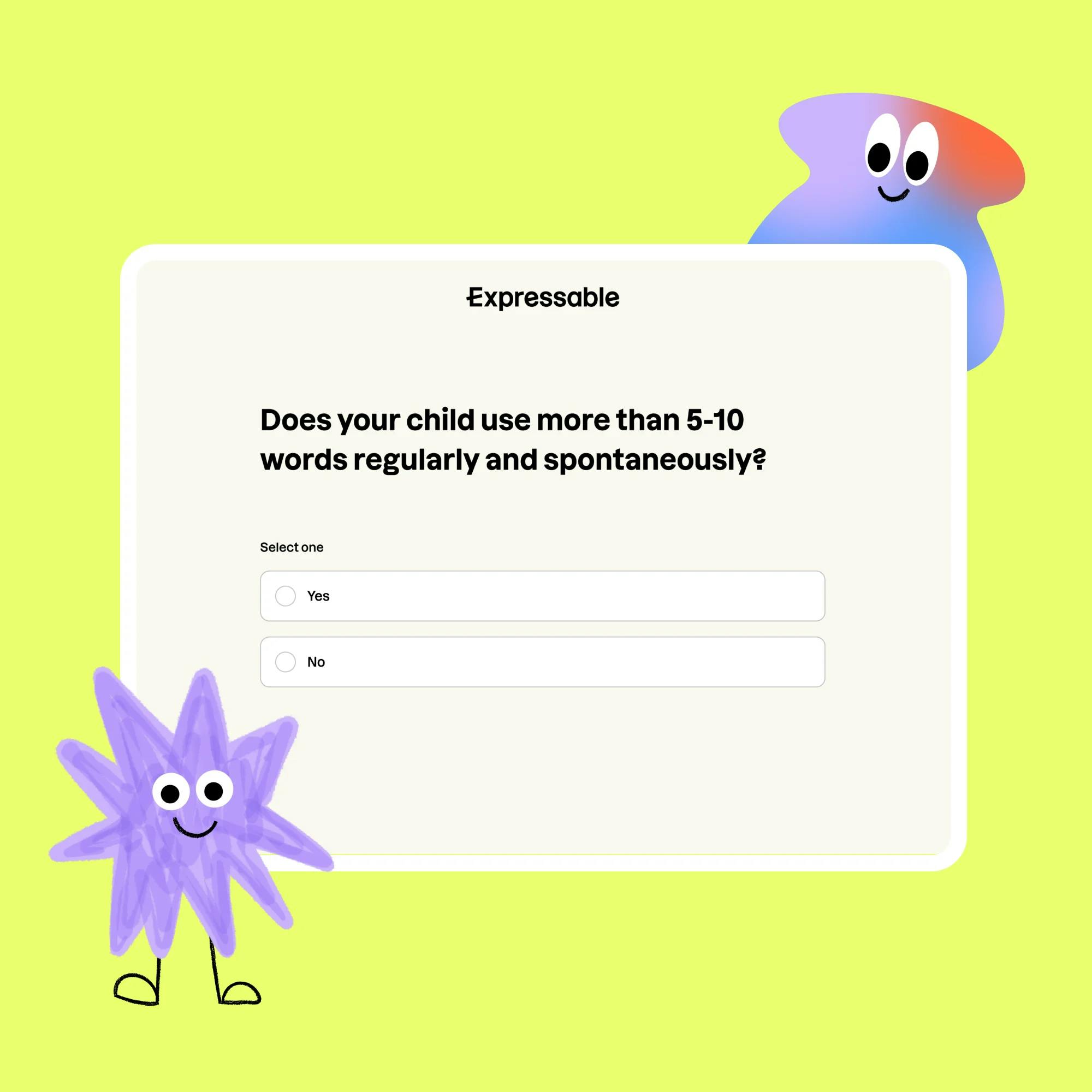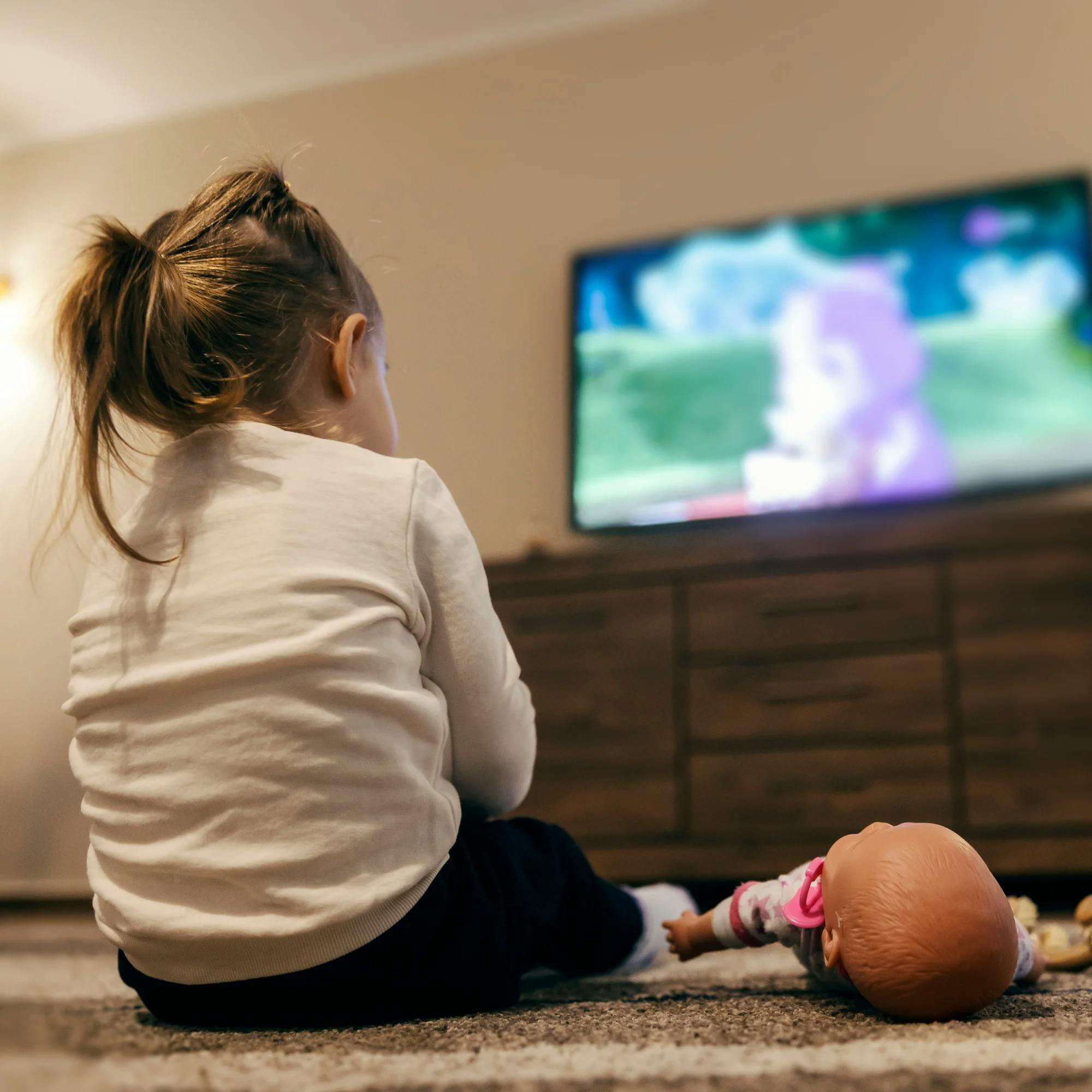
Parent Phone Use Can Affect Kids’ Development
 Abby Barnes, M.S., CCC-SLP
Abby Barnes, M.S., CCC-SLP
Ah, the siren song of the smartphone. You’ve got the world in your pocket or purse, and it’s so easy to get distracted by it–monitoring work email, texting friends, playing games, getting lost in social media. The moment the phone lights up, there’s an automatic urge to check in.
Our phones are part of modern-day life, and that’s not likely to change. But as a parent or caregiver, if you spend too much time scrolling when you’re with your child, it can affect their communication development. In this article, we explain why that is–and share some tips for cutting back on phone use so you can spend more focused, intentional time with your little one.


How does parent screen time affect children?
More and more research on parent phone use around children is being conducted, and the findings are meaningful.
First of all, kids do notice when we’re on our phones. In research studies, children often use words like “sad” and “lonely” to describe how they feel when their parents are distracted by their phone. Studies with teens reveal that many feel their parents are “addicted” to phone use, and they wish their parents would spend less time on devices.
Parents say they tend to be less responsive or have poorer reactions to their child’s needs when they’re distracted by a screen.
Parents and caregivers themselves report feeling more distracted and less connected with their children when they’re using a phone. They say they tend to be less responsive or have poorer reactions to their child’s emotional needs when they’re distracted by screen time.
So if both children and caregivers are associating negative feelings with frequent phone use, why do we continue to turn to our screens?
The research offers some reasons, such as responding to texts or emails, checking the news, wanting to escape, or simply feeling bored. But what’s meant to be a quick check-in can easily stretch into a half-hour or more of screen time. (Note, I am 100 percent guilty of this! I have a 3-year-old at home and even though I try to be conscious of my phone usage, it’s so easy to get distracted.)
How parent phone use affects kids’ communication development
Research has found that parent phone distraction can negatively impact a child’s communication development. Babies are born with billions of neurons in their brain. As they begin to have positive interactions with their caregivers–such as being held when they cry, or making eye contact–their neurons begin to make connections that help support speech and language development. That process is affected if a parent is less responsive to their child.
In one study conducted at Boston University School of Medicine, researchers evaluated mothers’ verbal interactions with their children during mealtime when phones were used versus not used. When a mother was using a phone, she had 20 percent less communication with her child and 39 percent fewer nonverbal interactions, such as eye contact. Another study outlined how interference from smartphones–also called “technoference”–can disrupt processes critical to learning language. The study showed that when a parent gazes at their smartphone rather than their infant during interactions, it reduces opportunities for eye contact and joint attention. Joint attention is what happens when two people are interested in the same object or task, and they both know that the other is interested in it. This is a crucial skill for babies to learn in their communication development.
In another study of 3- to-5-year-olds, parents asked their child fewer questions when using a smartphone than when remaining undistracted. Children were also less likely to ask their parent questions while their parent was looking at a screen.
Over time, all of these missed interactions add up. They can have a negative effect on our emotional connection with our children, as well as on our kiddos’ communication development. Communication is what connects us to others, so it shouldn’t come as a surprise that these two areas of development are so closely related!


The importance of caregiver involvement in speech and language development
As a speech therapist, if I could tell caregivers just one thing, it would be how vital they are in helping their child learn and grow in their communication abilities. Children learn best from the people they love the most and spend the most time with. They thrive when they receive the one-on-one attention they crave.
The research bears this out. Studies have shown that babies who are talked to throughout the day have stronger verbal abilities as they get older. Communication skills start early! It can be tempting to turn to your phone when your baby can’t talk yet, but even if they can’t answer you, talking and engaging with them benefits their development.
Let’s review some of the skills that communication at home can help build, starting from the early days of infancy. Talking with your child improves:
Nonverbal interactions, like eye contact
Their understanding of tones of voice and facial expressions
Back and forth interactions
Play development, which is linked to communication growth
Their ability to form phrases and sentences
Their understanding of new vocabulary words
Turn-taking in conversation
Their ability to communicate wants and needs


As children get older, they also need to navigate the social aspects of communication. These are things like:
How to introduce themselves
How to begin a conversation with someone
How to solve problems with another person
Appropriate nonverbal body language in conversation
No matter a child’s age, they’re constantly growing their speech and language abilities. They’ll learn some of these interactions with peers at school, but the foundation starts at home, with you! So making the most of your time with your child is crucial.


How parents can cut back on screen time
It’s not easy to dial back on smartphone use. And of course, you’re still going to use your phone in front of your child, and that’s OK. But spending less time distracted will benefit both you and your little one. Here are some ways to start changing your phone habits:
1 Turn your phone off
Schedule times in the day when you turn your phone completely off and put it away. During this time, be intentional about playing or talking with your child. Give them your undivided attention!
2 Turn off unneeded notifications
When our phones are constantly buzzing, it’s hard to ignore them. Take some time to go through your phone and turn off any app notifications that aren’t necessary. You can always go back and check notifications when you’re not with your child.
3 Be aware of your screen time usage
There are apps that tell you how much time you spend on your phone and which apps you use most. This can provide some insight into which apps you may want to delete or set specific times in the day to check.
4 Rearrange your apps
Move the most distracting ones so they aren’t on the first page of your home screen. You’ll be less likely to click these apps if you don’t see them as soon as you open your phone. Similarly, consider removing certain apps from your home screen altogether. You can keep them on your phone–just make them harder to access.
5 Schedule your phone use
Make a schedule for when you’ll use your phone. Try to spend a set amount of time on your phone completing necessary tasks, then put it away. You can even make it a point to schedule this time for before your child wakes up, while they’re at school, or after they go to bed.
6 Explain your phone use to your child
If you’re with your child and pause to use your phone, explain why you’re doing so, whether you’re responding to a time-sensitive text, checking a map, or sending a photo to Grandma.
It would be impossible to never use our phones around our children. But it is possible to limit how often our children see us scrolling, texting, or playing games. It may not be an easy habit to break, but think of all the benefits you’ll be giving your child when you make an intentional decision to focus on them.
How Expressable Can Help
Concerned your child isn't reaching age-expected milestones? Looking for communication support from a professional? Expressable is a national online speech therapy practice serving children and adults. We treat all major areas of communication and feeding, offer flexible hours including evenings and weekends, and accept most major health insurance plans. We’re proud to have earned more than 3,000 5-star reviews from our clients (4.9/5 average).
Our therapy model is centered on parent and caregiver involvement. Research proves that empowering caregivers to participate in their loved one’s therapy leads to better outcomes. That’s why we combine live, 1-on-1 speech therapy with personalized education and home practice activities for faster progress.
Communication is more than words. It’s how we share how we feel and show who we are. We’re here to help you or your child do just that.







